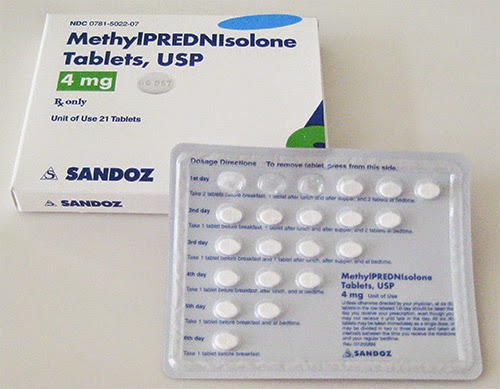Even though most people refer to corticosteroids as Prednisone there are actually different types, used for a range of different problems. Some people have even had bad reactions to some forms of these steroids but not are still able to take some of the other forms. So to give you a little idea here are a few of the different types of corticosteroids and what they might be used for;
Topical cortisone
There are OTC treatments like Cortizone 10 which are used to treat mild to moderate skin irritations. They may be used in a person with a skin condition such as eczema and psoriasis.
There are also many prescription topical steroids that your doctor can use for specific conditions. OTC creams are generally to treat more common, less problematic issues while prescription creams are usually stronger or more specific to a particular problem.
- Oral Corticosteroids
Including both liquid or pill forms, there are quite a few of them as well but some of the more popular steroids are Prednisone, Methylprednisolone, Deltasone, and Decadron. Oral Steroids have a very wide range of dosing. They are not OTC so you will need an Rx but they can be used to help with relatively simple problems such as treatment for a poison ivy reaction or very chronic, severe illnesses. The pills come in a variety of different mg 1, 5, 10, and 20 so that they can be used in many different doses.
Doctor's also might prescribe something called a Medrol pack which is a tapering dose of steroids. These packs are often used when a person is having an asthma flair or a flair of an auto-immune disease. The packs are usually no more then 10 days.
IV (intravenous) and IM (intramuscular) injections
Often given when someone is having a severe allergic reaction or if they have an auto-immune disorder that is getting much too out of control and the symptoms of the disease need to be controlled immediately. IV and IM steroids are usually used in larger doses in an effort to control the disease quicker. In extreme situations high doses of IV prednisone can even be used to save a person's life. Sometimes they are given as a treatment "cocktail". For example IV steroids such as Solu-Medrol are often used in conjunction with chemotherapy drugs and/or radiation in the treatment of cancer. This sometimes can help to slow the growth of the cancer cells.
Also just a little tip if you are going to take IV prednisone (and many doctors don't think to mention this...) when you are getting the infusion, which can take as little as 20 mins or as long as a few hours, it's always important to bring with you sometihing tasty to suck on. I have had at least a hundred IV infusions of Prednisone and every time, for some reason, you get this strange metallic taste in your mouth. My personal preference is to suck on creme lifesavers - for some reason it does a GREAT job at masking the taste:)
Steroidal eye drops
Steroids may also be needed to control inflammation in the eye. I actually work as on Ophthalmic Technician and we routinely prescribe steroid drops to keep inflammation down after cataract surgery. They can also be used when a person has an eye infection.
Cortisone Injections
Cortisone injections are given usually in the joints to control swelling. Obviously this is mostly used when someone has Rheumatoid Arthritis and there is a joint tha is chronically swelling. Many times doctors will not only inject the cortisone in the joint but they will also use that opportunity to draw out a lot of the fluids that are in the surrounding tissues. Cortisone injections don't tend to have very many side effects and have a pretty high success rate of controlling the inflammation in the joint for at least a time.
So there you have it guys! If you have any questions about any particular form of corticosteriods please feel free to ask away and I'll do my best to answer:) Thanks for reading everyone!






No comments:
Post a Comment